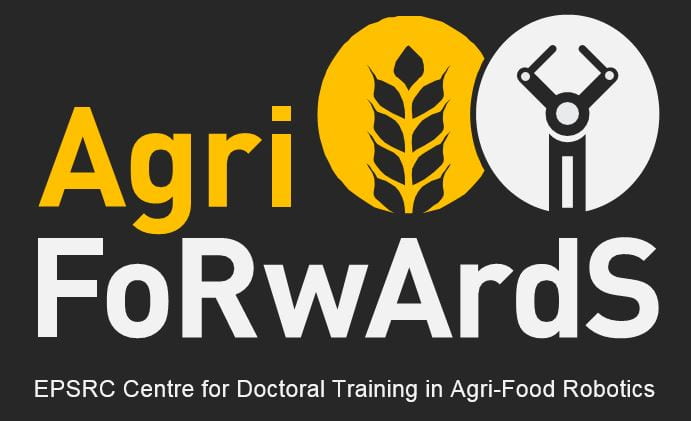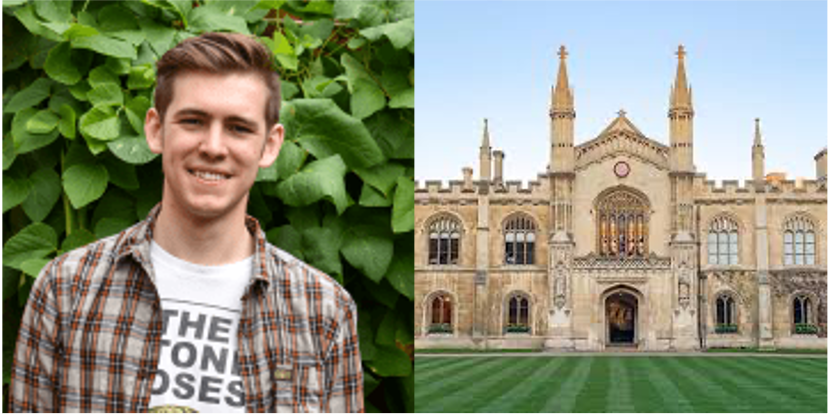The AgriFoRwArdS CDT is established by the University of Lincoln in collaboration with the University of Cambridge and the University of East Anglia. The AgriFoRwArdS CDT is a fully funded four year program and students take their first year at the University of Lincoln to complete their MSc Robotics and Autonomous Systems program. They then depart onto their final institution to complete a further three years for their PhD studies.
It is at the start of the new year that applications to these institutions can begin. The application process is extremely well guided by the CDT support team for each respective university. It is a formal process and can be a little daunting as it sits in the middle of the MSc studies. However, once complete, you have the exciting anticipation of later in the year moving to your institution and meeting your research team for the first time.
We asked AgriFoRwArdS (Cohort 2) student, Jack Foster, to share his experiences of moving to Cambridge for the first time and settling into his research team.
“I moved to Cambridge earlier than most students, arriving around May (2021) time as I was moving into private accommodation with my partner, and Covid meant in person sessions at Lincoln were almost non-existent. Moving early had its benefits, I was able to scope out the city, learn the bus routes, where I could park in the centre, where was good to eat and all the other things that come with settling into a new place. Once term time came around, I only had to acclimatise to PhD life – not to a new place. If possible, I’d recommend everyone try to spend a couple of weekends in Cambridge prior to starting your PhD, just to help smooth that period of transition.
I’m a member of Corpus Christi college, which is located right in the heart of Cambridge with postgraduate accommodation being a short walk away at Leckhampton house. Choosing not to live in college was a difficult decision, the location of college accommodation is often very good, and it is undoubtably the best way to meet other students. Unless you’re in a similar situation to myself, I’d certainly recommend college accommodation. Upon joining Cambridge, you’ll likely be matriculated into your college – a fancy way of saying they welcome you into the college and make you a member. This process varies by college, in my case it was very formal – suits and gowns with ancient traditions, Latin verses and a formal meal afterwards. This college stuff is intimidating initially, but just try to enjoy all those little peculiarities as they’re what give the colleges their charm. After matriculation, I decided it would be a smart idea to join some societies to meet people. I ended up playing for my college football team (which to my dismay train at an ungodly 7:30 in the morning), this proved a good way of feeling more at home in Cambridge.
On the academic side of things, settling into Cambridge was actually fairly simple. My supervisor, Dr Alexandra Brintrup, invited me to our working area at the Institute for Manufacturing, gave me a tour, and introduced me to the Manufacturing Analytics Group. From there, she and I discussed the details of starting my project and, well, I just got started. The early stages of PhD can be a little intimidating, trying to get to grips with such a large piece of work – I found it easiest to pick a small problem that is tangible and well defined, and to just solve that first. I think having a supportive and friendly supervisor, alongside a welcoming research group, was key to me settling in academically.
You’ll likely be required to study 2 engineering modules and a researcher developer course during your first year. My advice would be to pick things that are relevant and interesting, but also that you are confident you’ll pass. Do not gamble your PhD on proving you can take hard modules, and don’t pick things that are so time consuming you don’t have time to research because you’re trying to complete taught components.
I’ve really enjoyed Cambridge so far – the city, college life, and the freedom that comes with being a PhD student. Finally, I’d recommend keeping close contact with members of your AgriFoRwArdS cohort, lord knows Elijah (Elijah Almanzor – Cohort 2 student), and I have come to rely upon regular coffee meet-ups to just soundboard our problems and try to find solutions. It’s much easier to ask if you’re being stupid to people you know than those you’ve just met.
Oh! Last of all, buy a bike, you’ll be grateful for it later.”
A huge thank you to Jack for taking the time to share his experiences on beginning his PhD studies at Cambridge, and providing valuable insights for later cohorts.

